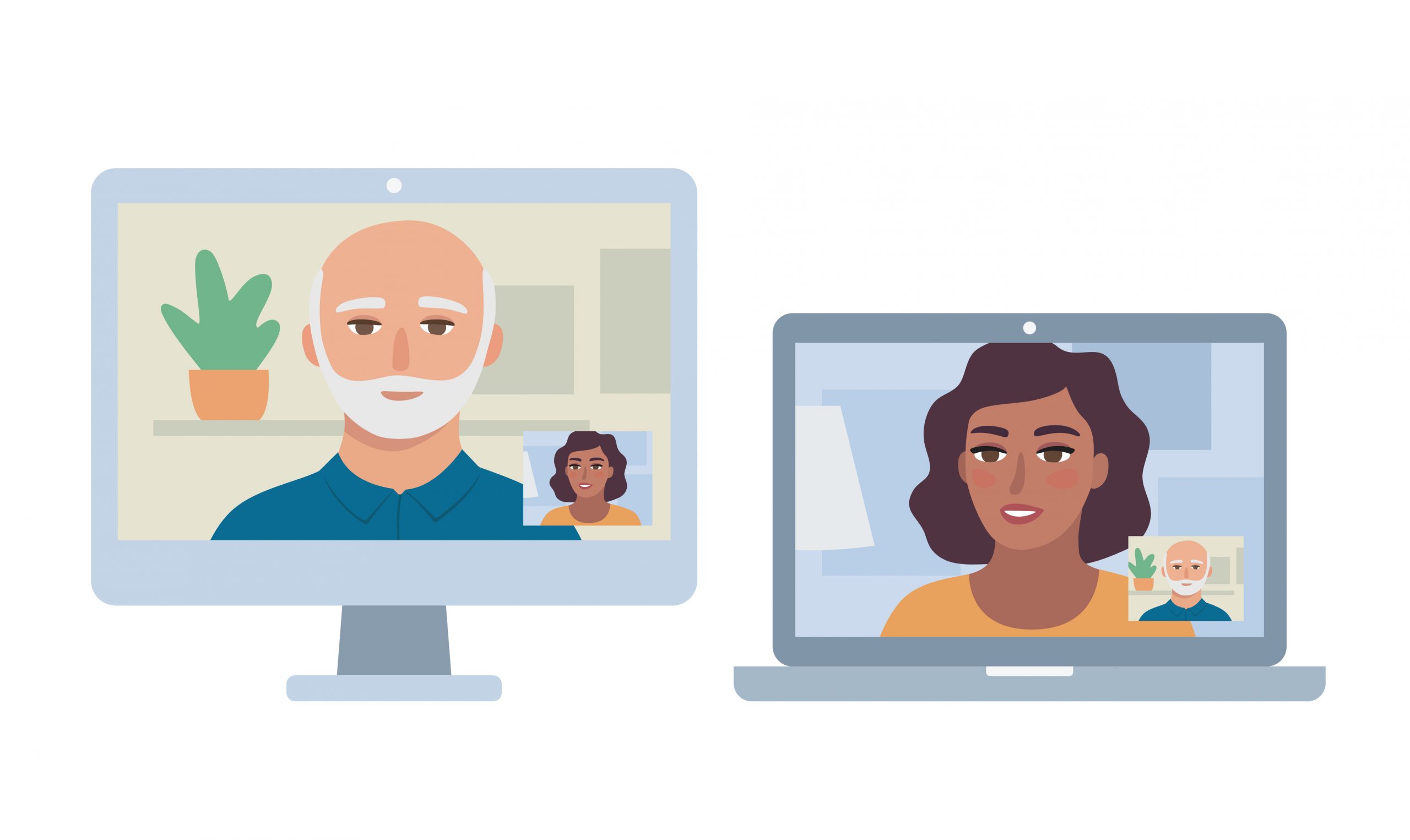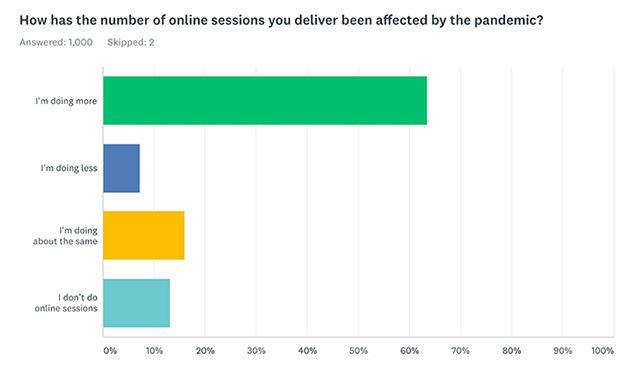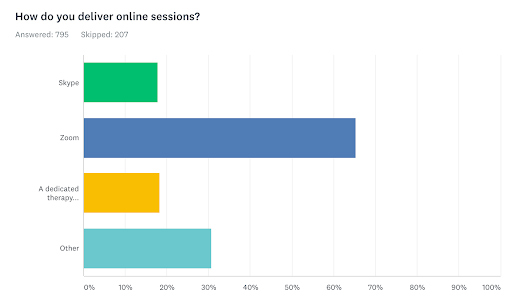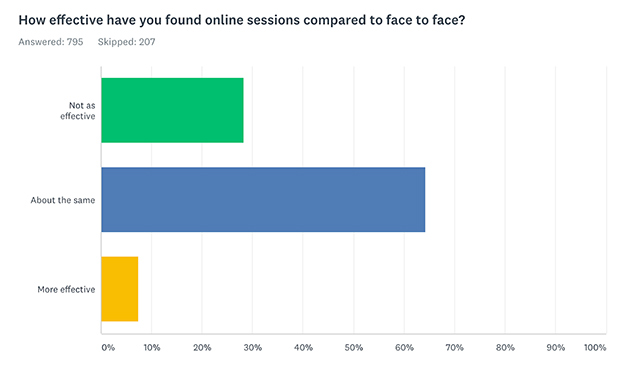
Our survey showed we've all been seeing more therapy clients online since lockdown, but we're not all happy about it.
As the world has taken a deep breath and prayed for coronavirus to pass, we’ve all become more distanced. And yet human ingenuity means we can continue to see, hear, and affect one another.
From Brazil to Finland and Iceland to Poland, I’ve been seeing many clients online over recent months. And of course, it’s not just me.
Online therapy has taken off in a big way. And talking of size, we were surprised at the huge numbers of practitioners who took our survey on online therapy. So thank you if you did.
So what, broadly, were the results?
Q1: How has the number of online sessions you deliver been affected by the pandemic?

As you would expect, most therapists are doing more sessions online. In fact, one respondent told us:
“I began seeing clients during the pandemic, so I don’t have any experience of in-person therapy.”
Zoom is doing well with practitioners, as with everyone else, it seems. Mind you, Zoom certainly isn’t the medium for all online therapy, as we discovered in the next question.
Q2: How do you deliver online sessions?

One person had an interesting take on the limitations but also the opportunities of using their phone to conduct sessions:
“I use my phone. The downside is not seeing non-verbal communication. However, a surprising upside has been that in making this overt by taking the one-down stance and saying, ‘It’s very quiet and I cannot see what is happening to you; can you help me by describing it?’ This has elicited an increased awareness in clients as they describe what is happening to them. This has been particularly powerful with couples when the non-distressed individual describes what they see for me. For some, this was the first time they understood that their partner understood them despite the conflict. Similar questions when face to face may or may not be therapeutic.“
This leads us to the third important question.
Q3: How effective have you found online sessions compared to face to face?

As you can see, over half of you felt that online therapy was as effective as face-to-face sessions. Some even felt it was more effective.
In our recent survey, over half of practitioners said they felt that online therapy was as effective as face-to-face sessions, with some even feeling it was more effective.
Q4: What other comments do you have about delivering therapy online?
The response to this open-ended question really surprised us. More than 500 practitioners answered it. You can read all the responses here.
One practitioner told us:
“One benefit is that it is less time consuming.”
Some respondents worried about connectivity, technical reliability, and also accessibility for clients. One highlighted technical issues (alongside some plusses):
“Cons – Technical problems – e.g. slow or weak connections, poor-quality audio/video, and distractions. Pros – accessible for clients who cannot access support due to location, lack of transport, physical health problems, etc. Future plans – preferable face-to-face sessions, which can be supplemented with Zoom sessions if and when needed.”
Another expressed concerns that some people in need would be restricted from accessing help:
“I find it very sad that yet again, the welfare of those who emotionally struggle (often daily) is dependent upon affording decent Wi-fi, laptop, computer, phone connection… those in need often do not have finances … to pay for technology (even just a phone) and/or support at the pertinent time… so connecting can be problematic due to poor connections. My desire is to support those I am able to.”
As a practitioner who has, on occasion, been interrupted by curious cats with little sense of boundaries, I appreciated this comment:
“I have encountered problems with my dog just being a dog and barking! Or the postman needing a signature… all the silly things that wouldn’t happen if I was in the office. Blurred boundaries of home/office.”
Some felt that they couldn’t build rapport as easily, or read body language; some complained that clients were more likely to cancel when online; and still others maintained that therapy could be more effective when conducted online.
So, while therapy online may not be ideal, for some who are able to connect in this way it may be of great help – especially, it seems, for those who perhaps in normal times may have found it hard to access face-to-face therapy. It’s not a perfect solution. But enough of you found it doable enough to at least consider continuing with it.
I just want to say thank you once more to all the practitioners who took part in this survey. You can see the full results here.
Watch Mark Deliver Online Therapy
Uncommon Practitioners’ TV features over 100 videos of Mark treating clients, and includes sessions delivered online during the Coronavirus pandemic. Read about it here.






